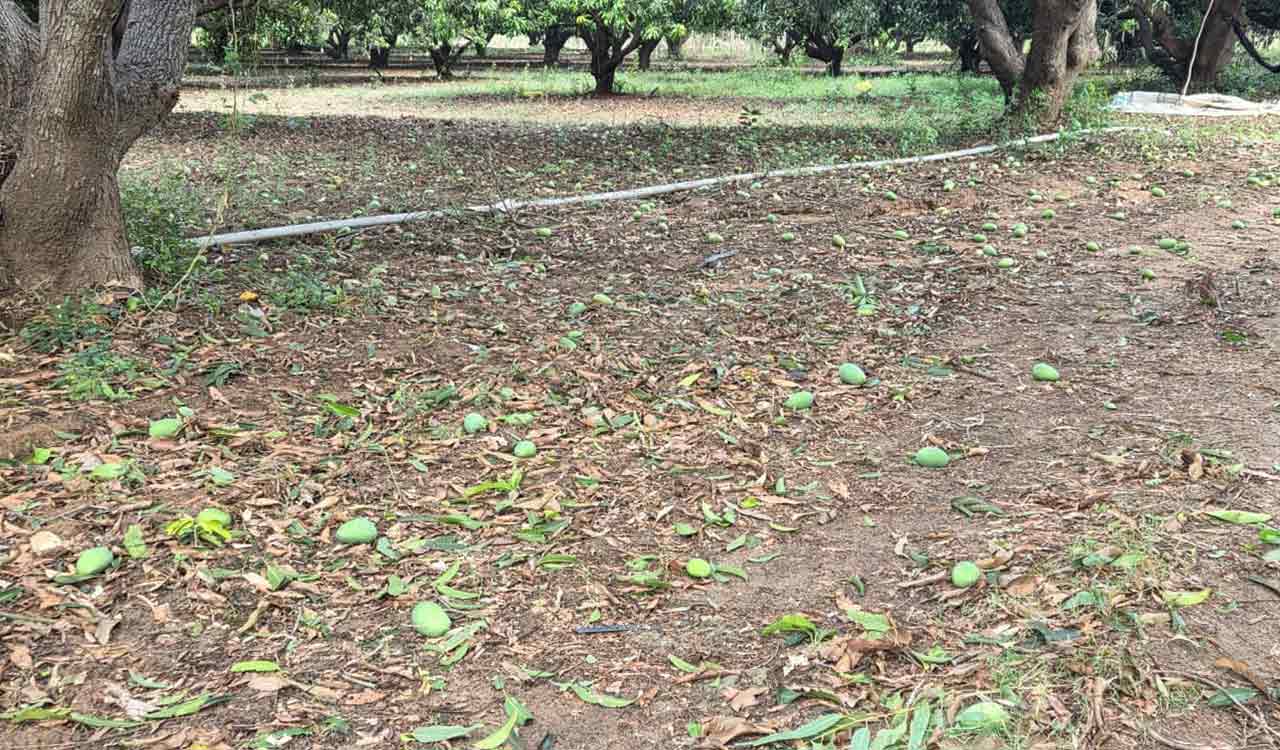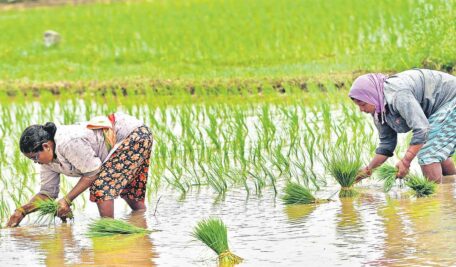Mango, paddy farmers bear brunt of unseasonal rains in Telangana’s Mancherial

The district saw unseasonal rains coupled with strong gales between April 30 and May 6
Published Date – 12 May 2025, 12:27 AM

Representational Image
Mancherial: Mango orchards in nearly 4,000 acres were damaged due to the recent unseasonal rains that hit several parts of the district a few days ago.
The district saw unseasonal rains coupled with strong gales between April 30 and May 6. Consequently, mango orchards that reached the harvesting stage in 3,713 acres in Nennal, Bheemaram, Bellampalli, Jaipur, Mandamarri and Thandur mandals were affected, officials said.
Mangoes were strewn across farms and roads, indicating the extent of the devastation.
According to official data, Bheemaram mandal recorded the highest rainfall at 23.8 mm, followed by Nennal with 21.3 mm on May 2. The district’s average rainfall stood at 5.2 mm. Jaipur mandal received 10 mm of rainfall, while Kannepalli recorded 9.1 mm and 6.5 mm respectively. The registered light rains on May 4 and 6 as well.
Distressed farmers lamented that they had hoped for good returns this season, but the untimely rains dashed their hopes. They urged the government to conduct a comprehensive survey of the damage and provide compensation at the earliest. Many growers pointed out that they had invested significant sums to cultivate the orchards.
Raja Goud, a mango farmer from Avadam village in Nennal mandal said the unseasonal rains wreaked havoc on the mango orchards, resulting in huge losses to farmers. He regretted that the horticulture farmers were unable to hire labourers to gather the mangoes that fell due to the rains and gales.
Meanwhile, paddy raised in 862 acres and was being harvested was affected by unexpected rains. Around 2 lakh metric tonnes of paddy stored at procurement centres was soaked, causing losses to farmers. The crop was grown in 1.21 lakh acres in the Yasangi season-2025 in the district.
Officials expected that the district would record a yield of 3.23 metric tonnes of paddy.
Officials said reports were prepared to extend immediate relief to the affected farmers by conducting surveys of crop damage. They added that sufficient tarpaulin covers were sent to procurement centres to prevent drenching of grains.






